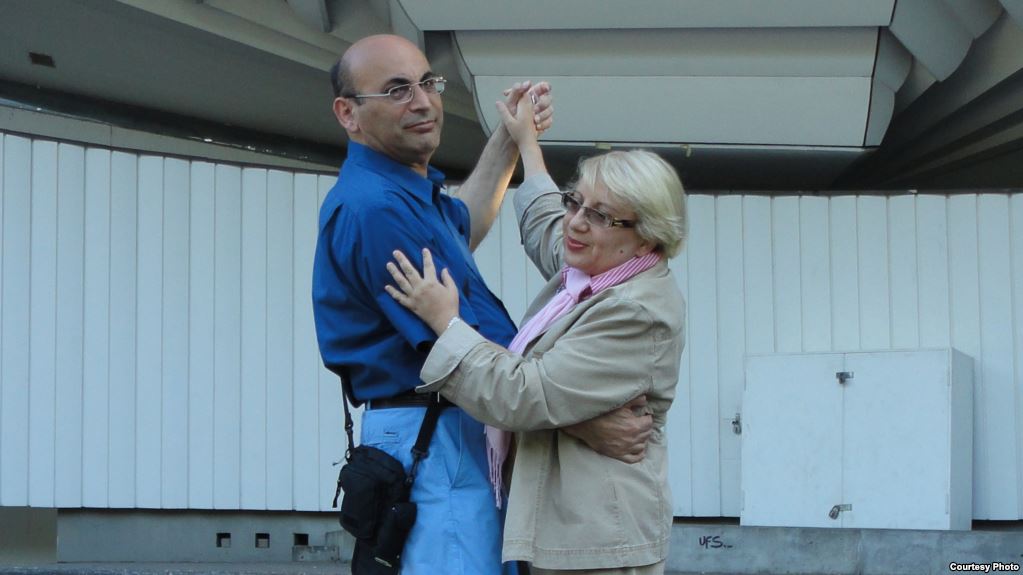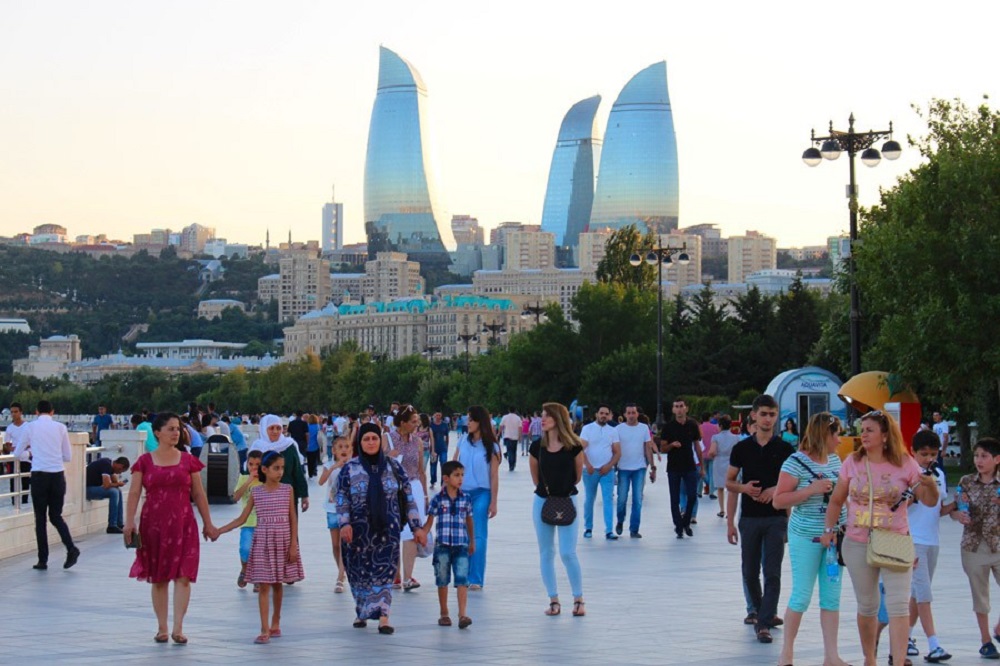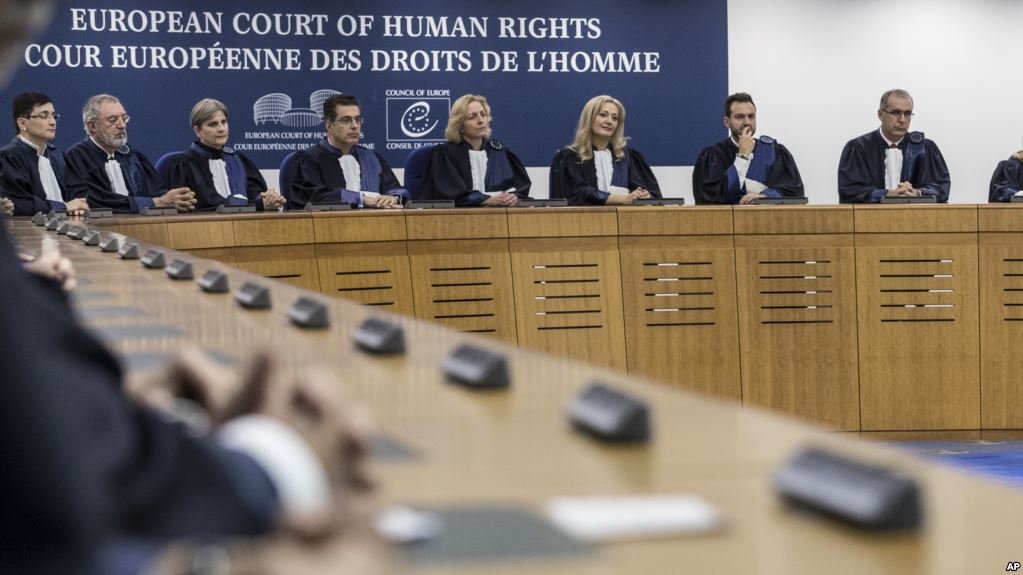European court rules on complaints by prominent human rights defenders against Azerbaijan
ECHR rulings against Azerbaijan
The European Court of Human Rights (ECHR) has announced decisions on four key complaints against Azerbaijan. The rulings, concerning prominent public figures such as Leyla and Arif Yunus, and Intigam Aliyev, highlight ongoing concerns regarding property rights, freedom of movement, and access to justice in the country.
- From 2019 to 2024, Georgian government institutions received 11 times more EU funding than NGOs
- Election difficulties in Azerbaijan: Intercoms and summer absences
Leyla and Arif Yunus: Violations of property rights and fair trial
Prominent Azerbaijani human rights defenders Leyla and Arif Yunus filed a complaint against the Azerbaijani government over the demolition of their home.
The couple was arrested in the summer of 2014 on charges of serious crimes, including treason.
In August 2015, Leyla Yunus was sentenced to 8 years and 7 months in prison, while Arif Yunus received a 7-year sentence.
Under pressure from international organizations, Arif Yunus was placed under house arrest in November 2015, and Leyla Yunus in December of the same year. In April 2016, the couple left the country and received political asylum in the Netherlands.
On September 24, 2008, the executive authority of Baku issued an order for the construction of a new park complex, which included the demolition and relocation of residential and non-residential properties. This plan involved the demolition of buildings and homes located on Fuzuli, Samed Vurgun, Shamsi Badalbayli, and Topchubashov streets in the city center, and the relocation of residents for the construction of the “Winter Park.”
At the time, the applicants owned two apartments at 38 Shamsi Badalbayli Street. In early 2010, officials from the city executive authority offered residents in this area compensation of 1,500 manats (about $880) per square meter of their property.
However, the officials proposed these payments based on sales agreements. Some residents accepted the offer and vacated their properties. Once these residents began leaving their homes, demolition work in the area commenced. This led to the complete or partial cessation of utility services to the remaining residents who did not agree to the offer, making living conditions unbearable for those defending their homes.
On February 8, 2011, the applicants filed a lawsuit in the Nasimi District Court against the Baku Executive Authority and the Nasimi District Executive Authority. They complained about the violation of their property rights by these authorities and requested the court to remove obstacles preventing them from exercising their property rights.
The Nasimi District Court declared that the dispute should be considered by the Baku Administrative-Economic Court No. 1 due to its administrative nature and dismissed the case as inadmissible. This decision was upheld by the Baku Court of Appeal on March 31, 2011, and by the Supreme Court on June 24, 2011.
ECHR rulings against Azerbaijan
On May 18, 2011, the Yunuses filed a lawsuit in Baku Administrative-Economic Court No. 1 against the Baku Executive Authority, the Nasimi District Executive Authority, the Ministry of Finance, and the State Committee on Property Issues. They requested the court to stop the actions of these authorities that were violating their property and other rights. They also asked the court to issue a ruling prohibiting any demolition work that could damage their apartments. On May 24, 2011, the court issued a corresponding decision.
On August 11, 2011, while the legal proceedings were still ongoing and despite the court’s ruling, the executive authorities demolished both of the Yunuses’ apartments.
On September 13, 2011, the applicants amended their initial claims, additionally demanding compensation for moral damages and lost profits amounting to 300,000 manats (approximately $176,470). On May 15, 2012, Baku Administrative-Economic Court No. 1 dismissed these claims.
On August 16, 2012, the Baku Court of Appeal upheld the first-instance court’s decision. On December 5, 2012, the Supreme Court overturned this decision, noting that since the demolition order was directed not only against the Yunuses but also against other residents living in the area, the applicants had no right to demand the decision be declared invalid, and their claims were inadmissible.
On December 14, 2012, the applicants filed a new lawsuit in Baku Administrative-Economic Court No. 1 against the Baku Executive Authority and the State Committee on Property Issues, demanding compensation for material damages amounting to 1 million manats (approximately $588,235) and moral damages amounting to 100,000 manats (approximately $58,823), due to the difficulties they faced as a result of the illegal expropriation and demolition of their apartments.
They complained that the amount proposed by the executive authorities was too low and presented an expert opinion confirming this, showing the actual market prices of apartments in the area.
The court ruled in favor of the applicants and ordered compensation of 1,500 manats per square meter of property (a total of 142,800 manats, approximately $84,000) to be paid to the Yunuses.
On June 4, 2013, the Baku Court of Appeal partially amended the first-instance court’s decision and awarded an additional 20% compensation (28,560 manats, approximately $16,800). The Supreme Court upheld this decision. However, despite the ruling, the Yunuses ultimately did not receive the compensation.
The Yunuses appealed to the ECHR, claiming that their rights to a fair trial, respect for private life, and property were violated.
The ECHR ruled that there had been violations of the Yunuses’ rights to property and to a fair trial. According to the ruling, the Azerbaijani government must enforce the Supreme Court’s decision in this case by September 25, 2013, within three months.
The ECHR also noted in its ruling that it was not ready to make a decision regarding material, moral damages, and legal costs. The government and the applicants must submit written submissions on fair compensation to the court within three months.
Intigam Aliyev: Right to freedom of movement
Renowned human rights lawyer Intigam Aliyev challenged the Azerbaijani authorities’ ban on his right to leave the country. The ECHR found that this restriction violated Aliyev’s right to freedom of movement and awarded him compensation of €3,500. The ruling highlighted concerns about the arbitrary imposition of travel bans on activists and lawyers in Azerbaijan.
Intigam Aliyev was arrested on August 8, 2014, on charges of illegal entrepreneurship, tax evasion, and abuse of power. On April 22, 2015, he was sentenced to 7 years and 6 months in prison. On March 28, 2016, his sentence was converted to a suspended sentence, and he was released.
Intigam Aliyev has been recognized as a “prisoner of conscience” by international and local human rights organizations.
Saadat Jahangir: Effective legal remedies
The case of journalist Saadat Jahangir also revolved around a travel ban imposed by the Azerbaijani authorities. The ECHR ruled in favor of Jahangir, recognizing the violation of her rights to effective legal remedies and freedom of movement.
The court awarded Jahangir €3,500 in compensation, emphasizing the lack of adequate legal protection against such state actions in Azerbaijan.
Razim Amiraslanly: Petition declared inadmissible
In contrast, the court declared the complaint of the unlawful arrest of Musavat Party Deputy Chairman Razim Amiraslanly against Azerbaijan inadmissible. This decision reflects the strict procedure for reviewing complaints and the high threshold of admissibility at the ECHR.






















